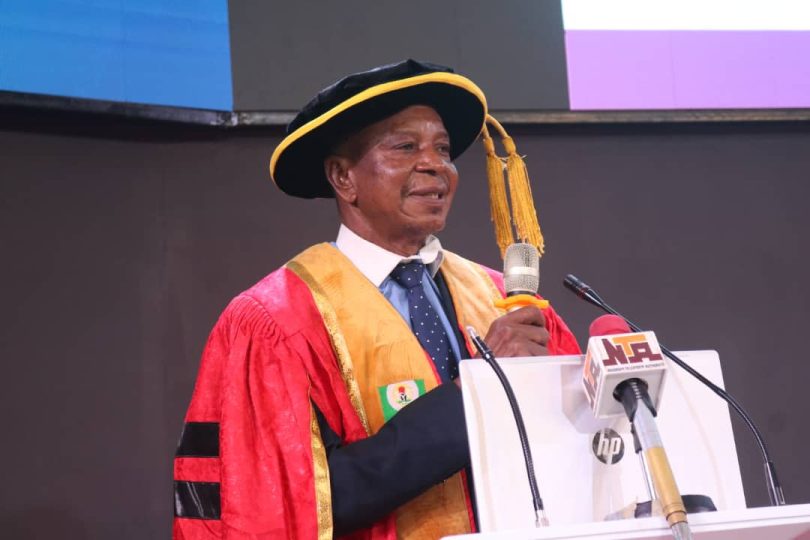A Professor of Counselling Psychology at the National Open University of Nigeria (NOUN), Fidel Onjefu Okopi, has called for psychosocial counselling to be integrated into everyday life, stressing that it should not be confined to schools, clinics, or offices.
Okopi made the call while delivering the university’s 37th Inaugural Lecture titled “From Heart to Heart: Integrating Psychosocial Counselling into Daily Life to Build a Harmonious Nigeria,” held on Thursday at the NOUN conference centre, Abuja.
“Counselling is not limited to clinics or professionals; it is the practice of human connection through listening, empathy, reflection, and support — skills anyone can learn,” Okopi said.
He explained that psychosocial counselling is essential because daily life is shaped by emotions, relationships, and contexts. “It promotes self-awareness, resilience, adaptability, and meaningful connections, helping one to heal, grow, and live with purpose,” he stated.
Okopi emphasized that the power of counselling without a counsellor is often underestimated. “You do not need to be a therapist to listen deeply to someone’s pain, help a child manage emotions, guide a young person in making good decisions, resolve conflict with empathy, or create safe spaces where people feel heard, respected, and supported,” he noted.
The professor advised that counselling should begin at home. “Home is our first place of learning, care, and belonging. It can either nurture well-being or breed tension. Counselling can be lived out daily in homes, schools, and communities through simple acts like attentive listening, kindness, reflection, and validation,” he said.
On the broader impact, Okopi maintained that integrating psychosocial counselling into family and community life transforms relationships. “Conflicts no longer divide; they become opportunities for respect and mutual understanding. Trust and safety flourish when principles such as confidentiality and unconditional positive regard are lived out in homes, classrooms, and communities,” he added.
He stressed that counselling values such as respect, confidentiality, compassion, cultural sensitivity, and integrity should extend beyond therapy into everyday life. “When practised daily, they foster psychological safety, allowing people to speak, feel and grow without fear or shame,” he said.
In his remarks, the Vice-Chancellor of NOUN, Professor Olufemi A. Peters, commended Okopi for advancing the conversation on counselling. He disclosed that NOUN has “the largest number of counsellors in any university in Nigeria because of the high regard the institution has for the discipline.”
Peters added: “Professor Okopi has made us understand that we do not have to be professional counsellors to help out in our society.”
The lecture was attended by principal officers of the university, staff, invited guests, and members of Professor Okopi’s family.

